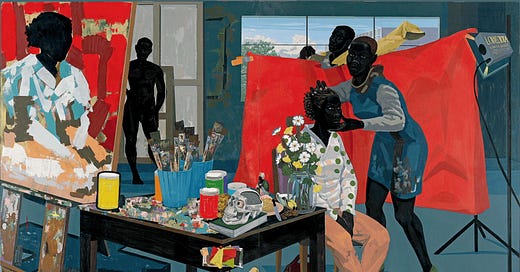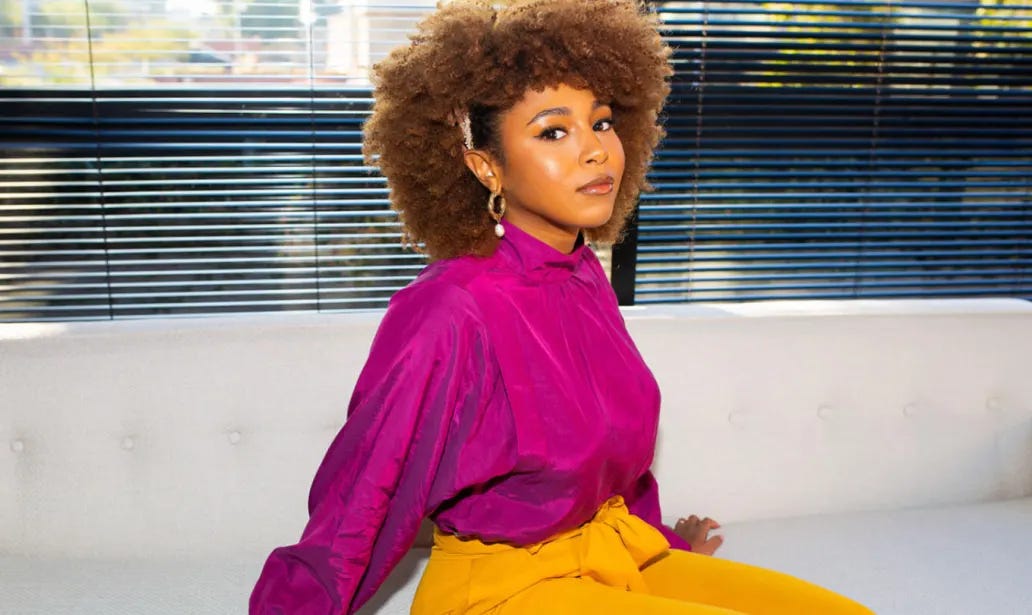Black Cinema Is Advancing, Even As Hollywood Retreats
As studios slash budgets and hedge their bets, Black creatives are laying the foundation for something more enduring—stories with purpose and paths to ownership.
The independent film world is in flux. What was once the scrappy, shoestring frontier of American cinema has ballooned into a global industry with blockbuster expectations—but without the safety nets. And as Hollywood reorients itself in the wake of a pandemic, labor strikes, and a peak-content hangover, the question hanging in the air is: what happens next?
You can see it in the films. The glut of sequels. The algorithm-optimized scripts. Movies based on board games and 1990s video games. Risk has been replaced by recognizable IP. Innovation feels rare, even punished. The mid-budget movie—once a staple of indie breakouts—has all but vanished.
Independent filmmakers are feeling the squeeze. Financing has become a brutal scavenger hunt. Distribution, once a lifeline, now flickers like a mirage. And while major studios tighten belts and consolidate power, the artists who make the work—the very lifeblood of cinema—are left to navigate a treacherous terrain with fewer tools and less support.
I first started asking questions about all this while in Park City for the Sundance Film Festival earlier this year. I wasn’t there as a regular on the circuit, but as an outsider curious about what filmmakers were facing. The answer, it turns out, is what many across the country are feeling: anxiety. Uncertainty. The sinking suspicion that the ground is shifting beneath us faster than we can react.
And yet, within that instability, something else was taking shape—particularly among Black filmmakers. I saw it in the conversations that lingered after screenings, in panels and pitch sessions, in whispered sidebars about what’s next. If much of the industry is retreating, this group is advancing.
Black filmmakers—who’ve long been forced to navigate scarcity and skepticism—are carving out new models for sustainability. They’re forming collectives, doubling down on ownership, creating alternative distribution channels. In many ways, they’ve been living in the future the rest of the industry is just waking up to.
I came looking for a story about struggle. I found a blueprint for survival.
Rachael Abigail Holder’s North Star
Rachael Abigail Holder leaned back on the couch in her hotel room, laptop balanced on a pillow, savoring a rare moment of stillness. Her daughter played off-camera, laughter punctuating our Zoom call—a reminder that even in the rush of Sundance, life goes on. The festival's unpredictability had made our conversation virtual, but Holder didn’t mind. She had learned to adapt, trust herself and the process.
That morning, before the premiere of Love, Brooklyn, she awoke early and reached for her journal. Not for notes or last-minute reminders, but to write down names—every person who had made the film possible.
“There are so many hands that have touched this movie,” she said with a serene smile. “I just wanted to take a moment and remember that this happened. That this isn’t a dream.”
It had taken years to get there—years of clarity, belief, and navigating an industry quick to shift its goalposts. The film’s path to Sundance started in an unexpected place: a script written by an older white man. Holder read it and saw Brooklyn—the Brooklyn she knew, loved, lived in.
“I didn’t even see white people or Black people. I just saw humans,” she said. “And I thought, we have an opportunity here to do something cool. Let me infuse a culture that I know lives in Brooklyn.”
Hollywood’s rhetoric on diversity rarely aligns with action. Holder heard every excuse.
“There was so much talk about diversity and inclusion but no real pathway to make that happen,” she said. “And then that changed, and then it became about ‘Black movies don’t sell internationally.’ So we can’t do those anymore.”
She refused to compromise. All movies are hard to make, she reasoned. “And I just feel like we have to take the narrative back.”
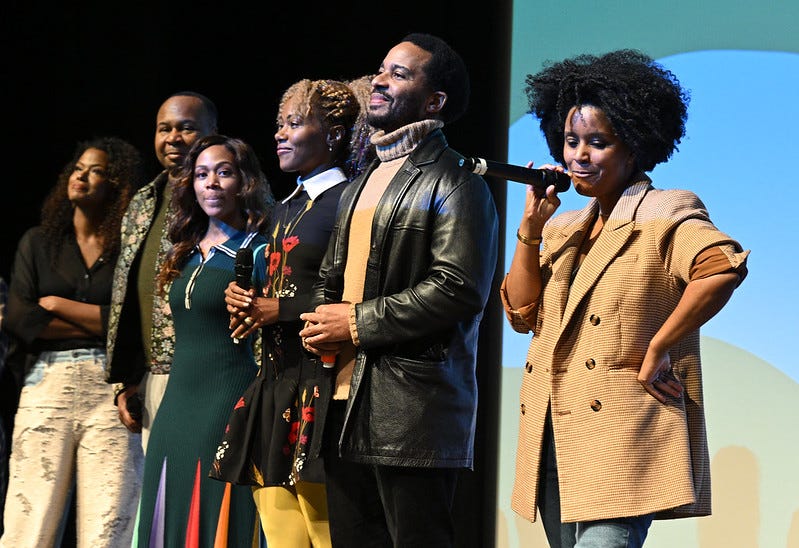
That meant finding the right people. Enter Andre Holland. Best known as an actor, he became a crucial producer and partner. When funding fell through, Holland made a call.
“Andre was like, ‘We don’t have money anymore. What do we do?’ And he called Steven Soderbergh, who got our funding to the finish line.”
At its core, Love, Brooklyn is about seeking clarity. Roger (Holland), a writer facing a magazine deadline, cycles through Brooklyn, unraveling his relationships. His ex, Casey (Nicole Beharie), an art dealer, crafts her own version of success. His current partner, Nicole (DeWanda Wise), a single mother studying massage therapy, balances ambition with self-possession. Each wrestles with love, work, history. Each follows their own north star.
After six years, Love, Brooklyn premiered to a packed house. But the work isn’t done.
“We’re trying to find its home,” she said, meaning distribution. “We have a great sales agent who feels like an artist, which is amazing.”
It’s another leap of faith—the kind that got her to a hotel, chillin’, at Sundance. Holder trusted herself to make the film. Now, she’s trusting someone else to help it find its way into the world.
The industry will always have reasons to say no. But Holder’s story suggests that if you follow your north star—your vision, your instincts—you’ll find your way, no matter how winding the road might be.
After talking with Holder, a few screenings, and panels, it was clear: Black filmmakers aren’t waiting on Hollywood to get its act together. The industry is shrinking? Fine. They’ll build something else.
What does that look like in real time? It’s Daniel Kaluuya in Andre 3000 merch at the MACRO Lodge party—a wink to those in the know. Boots Riley, his signature hat a lighthouse in the crowd, holding court after Elegance Bratton’s premiere. W. Kamau Bell, caught in the eternal house-party dilemma, weighing the etiquette of going sock-footed at a no-shoes affair. Niecy Nash-Betts, regal in fur, commanding Main Street like it’s hers—which, in that moment, it is. Dewayne Perkins, grabbing one last canapé before diving into the swirl of panels and pitches. Roger Ross Williams and Sam Pollard, moving fast toward black cars, their latest masterpiece driving them forward. And Questlove, the maestro, spinning at the MACRO Lodge, his beats the unofficial soundtrack of Black Sundance. These flashes—these brushstrokes of presence—were the fuel. The fire. A reminder that the dream of Black Hollywood, elusive though it may be, still lives.
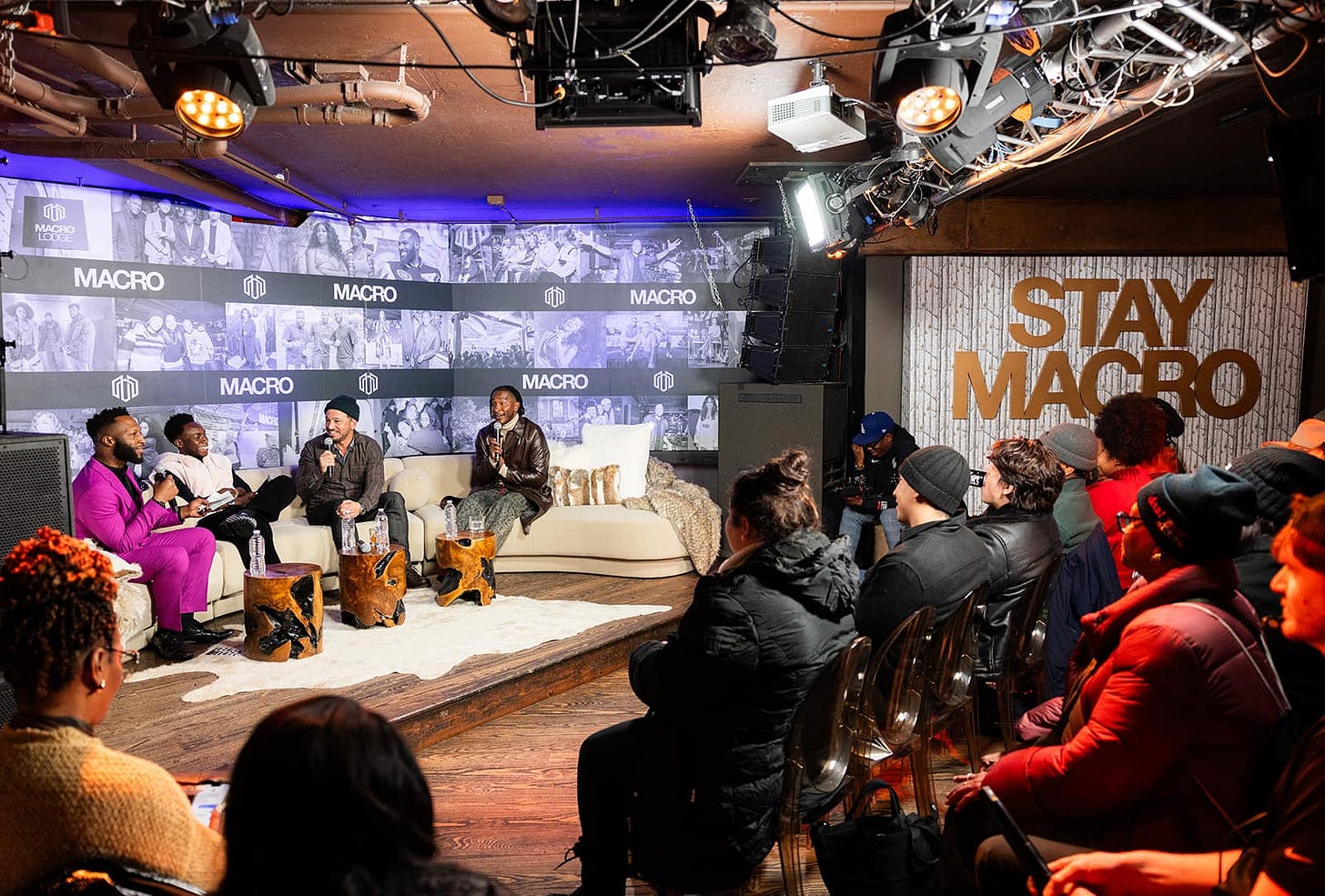
The MACRO Lodge functions as more than just a gathering spot—it’s a strategic intervention in the power dynamics of Sundance. Spearheaded by Charles D. King—MACRO’s founder and CEO—the Lodge centers Black and Brown creatives, offering an alternative to the legacy-laden spaces where access is often gatekept by capital and insider connections. Here, conversations happen on equal footing. Filmmakers connect directly with investors, executives share space with first-time directors, and the usual hierarchy of Hollywood feels, at least temporarily, suspended. But this isn’t charity. The Lodge serves a purpose for MACRO, the Black-owned production company behind it. Even in years when the company doesn’t have a film in the festival, the space ensures it maintains a visible, influential presence—staking ground in an industry that still makes a habit of sidelining those who built the culture.
At the center of it all is Staci R. Collins, Head of PR at MACRO, who runs the Lodge with a mix of graciousness and precision rarely seen at Hollywood events, but often seen in Black women at the top of their game. Where many industry gatherings buckle under the weight of ego or chaos, Collins keeps the energy intentional—welcoming without being performative, efficient without feeling corporate. She understands that hospitality is strategy, and her steady hand helps turn a weekend of parties and panels into something more enduring: a sense of community, of care, of possibility.
It’s a model for a healthier film industry, one that feels less like a hostile market and more like community.
Still, Black filmmakers are fighting an uphill battle. Even popular Black-led shows are frequently canceled (think How to Die Alone, Bel-Air, and 61st Street) and the films are few and far between. The 2025 UCLA Hollywood Diversity Report confirms systemic undervaluation on the film side: Black directors helm only 12.5% of top films, and Black-led projects face budget constraints. Even trailblazers like Ava DuVernay, forced to seek philanthropic funding for 2023’s Origin, and Issa Rae, whose Rap Sh!t was canceled in 2022, have spoken out about the industry's reluctance to engage Black stories.
But this scarcity is not new. Hollywood has long undervalued Black stories—until it needed them. In the early 1970s, the film industry was gasping for breath. The studio system was crumbling, audiences were defecting to television, and big-budget flops had nearly bankrupted the majors. Then came the unexpected lifeline: Blaxploitation.
Films like Sweet Sweetback’s Baadasssss Song and Shaft delivered something Hollywood had largely ignored: Black protagonists, urban realism, and soundtracks that slapped. Made on shoestring budgets and marketed directly to Black audiences, they were wildly profitable. For a moment, Black films didn’t just break even—they saved the industry.
Studios took note. They cashed in. But as soon as the crisis passed, the window began to close. The support dried up. The cycle—panic, embrace, profit, retreat—became a blueprint. Today, with budgets slashed, production slowed, and audiences harder to pin down, the conditions feel eerily familiar. Once again, Black filmmakers are offering vision, voice, and viability at a moment when Hollywood has lost its footing.
Aurora Brachman and LaTajh Simmons-Weaver’s Power in Partnership
In a corner of the Sheraton lobby, Aurora Brachman and LaTajh Simmons-Weaver hunched over laptops, processing the particular exhaustion that comes with bringing a documentary to Sundance. Their film, Hold Me Close, a quiet study of Black queer love, had been built entirely outside traditional funding structures. No celebrity attachments, no studio backing—just grants from POV Shorts and Chicken & Egg Pictures. That was step one in sidestepping the traditional paths. Step two involved a lot of teamwork.

"Sundance might be the key, but how many doors you open with that key is up to you," Simmons-Weaver observed. At a development panel earlier in the week, they'd been told bluntly that without a big-name celebrity, their kind of film was essentially unmakeable in today's market. The industry, they were informed, rewards spectacle over subtlety, marketability over meaning.
Their response was to work the festival together with strategic precision. Brachman approached it like a detective, armed with a spreadsheet of key players and their headshots ("We were Googling all these rich people, screenshotting their faces so we'd know who to look for at brunch"). Simmons-Weaver trusted in serendipity, striking up natural conversations that often led, somehow, to exactly the right people. At one documentary party, she found herself deep in discussion about college with someone she assumed was a fellow filmmaker—only to discover later she was talking to an Oscar-nominated producer.
But magical meetings only become opportunities when paired with momentum. So, they sat in the Sheraton, recalibrating for their next move, they weren’t waiting for Hollywood to open doors. Their laptops glowed, and fingers hovered—because the next breakthrough, the next connection, was just one well-placed email away.
Hacking the system together with a mix of grassroots ingenuity and good old-fashioned hustle is their plan for getting past Hollywood’s hurdles. So far, it’s working.
Taylor Shaw’s Green Light
At Atticus Coffee, during the festival's final weekend, Taylor K. Shaw, the Senior Outreach Lead for Film at Kickstarter and founder of Black Women Animate, outlined what might be called a manifesto for this new independence. "As a South Side Chicago girl, I was always taught that you don't wait for permission," she explained, as I waited for an Americano. "You create. You build. You move forward."
Shaw launched Black Women Animate in 2017 to address the animation industry's diversity crisis, but her vision extended beyond training. She wanted to build infrastructure—the kind Hollywood had failed to provide. "We can't stop telling stories," she insisted. "And we can't wait for someone else to greenlight us. We have to greenlight ourselves."
The café buzzed with the particular energy of a festival winding down—agents murmuring about last-minute deals, directors scribbling notes in the margins of scripts—but Shaw remained focused on the future she saw emerging. "The way forward for Black creatives is to own our relationships with our audiences," she argued. "Because when you wait for people to approve your vision, you can wait forever."
Success, in her framework, needed redefinition. "It's not just about the money," she said, tapping the table for emphasis. "It's about being able to make your work on your own terms." She pointed to crowdfunding as more than just a financial tool—it was a mechanism for creative independence. "People think about Kickstarter as just raising money, but it's also about building community. If you have even 1,000 people who back your projects time and time again—that's sustainability. That's career longevity."
“I think you have to walk into every room knowing you deserve to be there. And, a step further than that, you deserve support.”
She leaned in. “So if you know you deserve support, what is it to ask somebody to back your campaign and give $75? They may say yes, they may say no.”
She shrugged, as if the truth of it was obvious. “But if you keep asking—if you keep moving forward, if you keep knowing that you are worthy of support—you’ll grow the community that will back you.”
By now, the café had started to empty. Shaw stretched, gathered her things, and smiled.
Over the course of the week, she had met with dozens of filmmakers, ensuring they understood what was possible outside the Hollywood system. “If you’re afraid to ask for money, think of it as an exchange. You’re giving something of value, and people are grateful for that.”
It was a simple shift in perspective but a powerful one. For filmmakers—especially those historically shut out of traditional funding avenues—reframing financial support as an exchange rather than a favor could mean the difference between stalled dreams and realized projects. It was an invitation to step into their power, to see their work as inherently valuable, and to build an audience that believed in it just as much as they did.
She disappeared into the festival crowd soon after, already moving toward the next conversation, the next connection.
So yeah, Black filmmakers aren't just surviving Hollywood's meltdown; they're lowkey leading the revolution. They're showing how partnership, real vision, crowdfunding, and a bit of luck might converge to redefine the future of filmmaking.
Elegance Bratton’s House Call
Standing before a packed house for the premiere of Move Ya Body, his documentary on the birth of house music, Elegance Bratton connected the dots between past and present resistance. He referenced the infamous Disco Demolition Night of 1979, when fifty thousand white people gathered at Comiskey Park to destroy Black music. "But really what they were trying to do was to tell a young man like Vince his place in the world and to warn him not to ever dream about reaching for anything more," Bratton said, gesturing to Vince Lawrence, one of house music's pioneers, who stood beside him on stage.
Bratton then articulated something that was on the minds of many: "I heard that the woke era is over in Hollywood,” he said before adding, “I didn't hear when it started.”
Move Ya Body exists in defiance of such trends. The film itself serves as both historical document and contemporary manifesto. It tracks the evolution of house music from the ashes of disco's manufactured demise, through the underground clubs of Chicago, to its current renaissance. But more than that, it charts a path of artistic resilience—how creative communities survive and thrive despite institutional resistance.
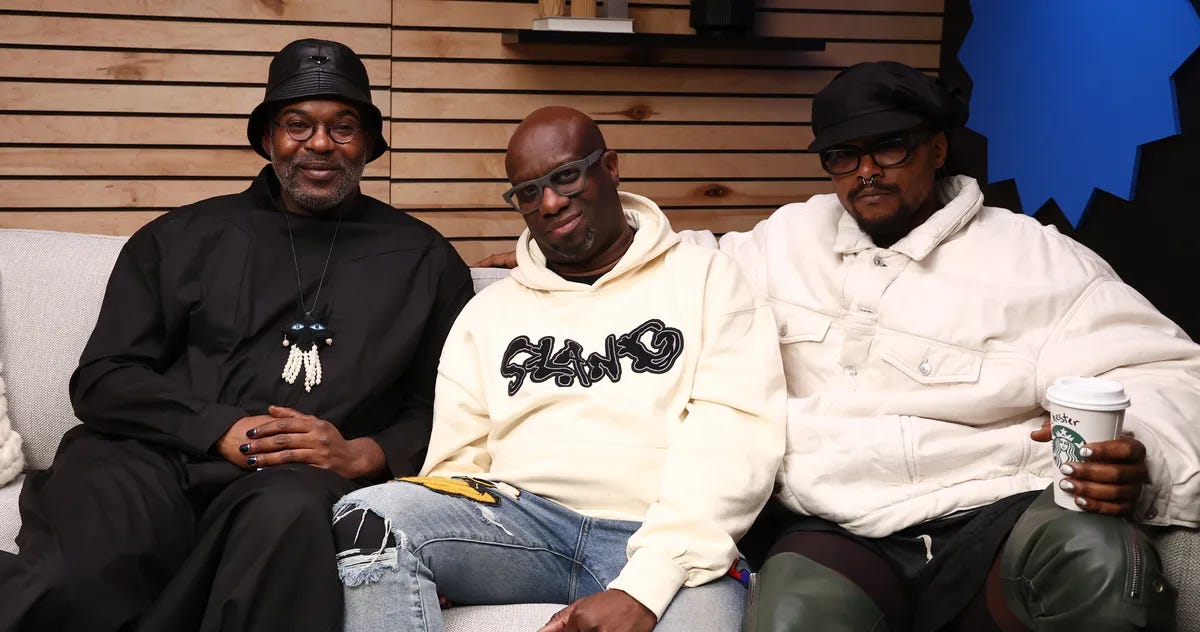
Bratton’s voice carried the same cadence as the music his film celebrates—repetitive yet urgent, a sermon as much as a speech. “We’ve always been here. We’ve always been loving each other. We’ve always been inspiring each other. And we’re not going anywhere,” he declared, a line that could double as a house music refrain or a battle cry for Black filmmakers.
He spoke, too, of the algorithmic chokehold on storytelling, of how “incredibly worthy work” is being sidelined while AI-generated content floods the market. But Bratton wasn’t interested in lamenting. He was issuing a call to arms. “We must all watch what matters to us so that there’s a reason for it to be made,” he urged. And for the gatekeepers, a challenge: “If you have the privilege of being in a position to program, you must be brave.”
And then, a shift—from critique to joy, from the problem to the proof. Bratton described the intimacy of the footage—young Black men in Chicago making music together, making noise, making space for each other. “I’ve never seen a fiction film that depicts young Black men from Chicago sitting in a room with instruments and making a joyful noise,” he reflected. “I felt like that needed to be shown to people.”
His film, like house music itself, isn’t just about preservation—it’s about continuity. He celebrated the younger DJs and artists keeping the sound alive, the queer Black communities ensuring house doesn’t fade into a footnote. “House is far from dead,” someone in the crowd said, and Bratton nodded in agreement.
As the lights dimmed, as the applause swelled, as Move Ya Body took its first step toward the world beyond Sundance, Bratton left the stage with a final note of gratitude. “I couldn’t have dreamt of having a first feature at Sundance be a better experience than this,” he said, voice thick with emotion. Then, with a parting grin, “I’m gonna go drink.”
In the strange, twisted universe of modern Hollywood, where the past is always being rewritten and the future is always in question, Bratton’s message was refreshingly simple: keep the music going. Keep the stories coming. And, above all, keep dancing.
As the festival drew to a close, I found myself back at Atticus Coffee, watching the last stragglers with their festival badges that had, for ten days, transformed this ski town into the center of independent cinema. The anxiety about Hollywood's future hadn't dissipated, but it had been joined by something else: a sense of possibility. Black filmmakers weren't just surviving Hollywood's volatility; they were mapping its future. They were building new funding models, new distribution strategies, new metrics for success.
The same economic pressures reshaping Hollywood are rippling through every industry. Perhaps the lessons these filmmakers embody—self-determination, adaptability, radical collaboration—are lessons for us all.
Recommended
First, Ryan Coogler Made Sinners. Now He’s Living the Movie’s Dream
Coogler’s vampire drama got under Hollywood’s skin, then made more than $360 million anyway. Thanks to an unconventional deal with Warner Bros., Coogler will one day own the fruits of his labor.
Gabrielle Union Says Tisha Campbell Saved Her Life
Gabrielle Union got candid about her experience as a Black actress in Hollywood and discussed finances, community and more at the 2025 ABFF.
Issa Rae Says She's Taking Steps To Be 'Independent'
“You’re seeing very clearly now that our stories are less of a priority.”
Budgets For ‘Prestige’ Films Dried Up. So Ava DuVernay Found A New Way
The filmmaker couldn’t get traditional financing to film “Origin” — but the Ford Foundation, Melinda Gates and other philanthropists were willing to help. It might be cinema’s new business model.
Elvis Mitchell Reveals How Blaxploitation Saved Mainstream Cinema
The documentarian's love letter to Black Cinema of the 1970s gives an eye-opening glance at the true impact of the Black films we often dismiss.
RaMell Ross Wants $10 Million for Two Projects After ‘Nickel Boys’: ‘It Has to Be Philanthropic Because It’s Not Really a Return’
Ross made his feature narrative debut with Best Picture nominee "Nickel Boys." He's now looking to fund his next work.


